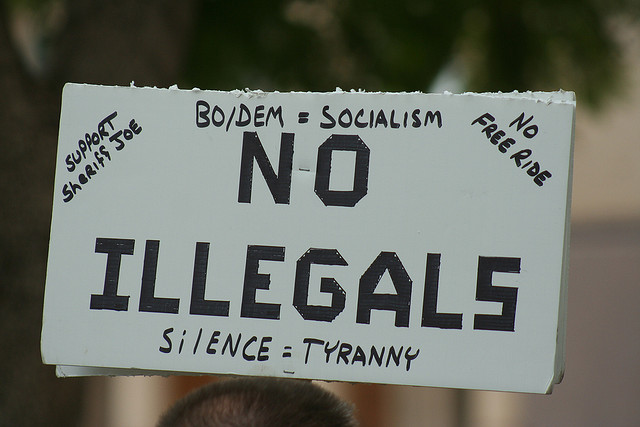By Barry Rascovar
For MarylandReporter.com
Since it’s an election year, Democratic politicians in Annapolis are eager to pass an increase in the minimum wage. Gov. Martin O’Malley is poised to promote a higher minimum wage law in Maryland as part of his incipient campaign for national office.
But is it a good idea? Will there be unintended consequences in the form of job reductions?
That could well be the case, based on a recent Texas A&M economic study. It’s also the findings of a February study by the Congressional Budget Office.
Bottom Line: A jump in the minimum wage by 10% (Maryland’s proposal is 13% in year one and a cumulative 39% over three years) will have a significant negative impact on future job hiring.
The nonpartisan CBO forecasts that a federal hike in the minimum wage from $7.25 an hour to $10.10 an hour could mean a likely loss of 500,000 jobs nationwide, although there’s a chance the job loss could hit one million.
The Texas A&M study may be more relevant in that it looked at new job creation in the year following previous minimum wage hikes. “Net job growth falls in response to an increase in the minimum wage,” it concludes.
Tom Firey of the Maryland Public Policy Institute figures this could mean the loss of 25% of all newly created jobs in Maryland if the General Assembly ups the minimum wage.
He adds: “In this miserable economy, the last thing we need is to further handicap job growth and business start-ups.”
Facts and figures not persuasive
All this is fascinating data and under normal circumstances the facts and figures should prove persuasive.
Not for politicians in an election year, though. Not when labor unions and liberal advocacy groups are going overboard promoting a higher minimum wage as the Second Coming.
But beware of the side effects: Higher consumer prices, a contraction of small retail businesses and unemployment for many now employed at the minimum wage rate.
The trade-off: help for the lowest salaried workers, who would see their pay (before taxes) go up by 3%.
Yet raising the minimum wage amounts to a shotgun approach: Only 19% of those who would receive this raise come from households below the poverty threshold of $15,730 for a family of two and $23,850 for a family of four.
Indeed, 29% of those benefiting from a $10.10 minimum hourly wage would come from households earning three times the poverty level ($46,190 for a family of two, $68,450 for a family of four).
An Alternative Route
 A far better way to deliver financial support to the lowest-paid workers is increasing the federal and state earned income tax credit. One hundred percent of that money winds up in the hands of a low-wage worker earning less than $15,000 annually (the cap is $54,000 for a couple with three children). It’s a highly effective income supplement for low-wage workers.
A far better way to deliver financial support to the lowest-paid workers is increasing the federal and state earned income tax credit. One hundred percent of that money winds up in the hands of a low-wage worker earning less than $15,000 annually (the cap is $54,000 for a couple with three children). It’s a highly effective income supplement for low-wage workers.
That’s not going to happen in Maryland because a more generous EITC means a big hit to the governor’s budget, whereas raising the minimum wage socks it to small businesses primarily, not the government.
Yet given Maryland’s shaky economic recovery, lawmakers in the Senate are beginning to have second thoughts about sharply raising the state’s minimum wage. After all, Maryland lost nearly 10,000 jobs in January. Passage of the governor’s bill might accelerate those job losses.
It’s a Catch-22 for liberal Democratic lawmakers. Advocates standing on the sidelines promote this bill as a huge boost to the economy. Yet no impartial economic study comes to that conclusion.
Middleton’s demand
Now a key senator, Thomas Mac Middleton from Charles County, has thrown a new issue on the table. The governor’s bill ignores the plight of workers who care from the state’s developmentally disabled. They’d end up earning less than the new minimum wage.
Middleton won’t move the governor’s bill until this oversight is addressed. Developmental disability workers — 18,000 in community settings — deserve far more in wages than they’re paid ($9.82). They perform some of the most emotionally trying work in society tending to 25,000 developmentally disabled people in Maryland.
Even more egregious, the state pays its own developmental workers in rural state residential facilities much more. That fundamental inequity makes no sense except in terms of saving money when the state budget is formulated.
O’Malley’s minions are negotiating with Middleton and likely will find a way to satisfy the senator. Yet this problem is just the tip of the iceberg.
How many other job categories within state and local governments will have to be adjusted because of a $10.10 minimum wage? Is it affordable?
Passage coming
There’s no doubt a modified version of O’Malley’s bill will be approved.
It may not have all the bells and whistles far-left advocates and the governor desire, such as an automatic cost of living increase and a big boost in salaries for tipped workers.
The path to $10.10 might be phased in more slowly. More exemptions might be added to cover college students working the summer beach season in Ocean City.
In the end, though, Maryland lawmakers will put a higher minimum wage on the books — even though it may not make sound economic sense and might prove the wrong way to address this dilemma.







I always find it interesting how well compensated economists come up with studies that show the negative effects of increasing the minimum wage, but never do studies on the negative effects raises for corporate CEOs or other high income folks. Incomes for those in the middle and lower half of the population have been declining or stagnant for decades, while the incomes of those at the top have been soaring, yet the answer always seems to be that, heaven forbid, we can’t possibly raise the minimum wage, or it will have terrible consequences.
So, raising the minimum wage costs jobs. Maybe we should lower it to the point where employment is 100 per cent? Heck, when it gets down to twenty cents per hour I will probably hire one or two folks myself. Why shine my own shoes?
So we raise the minimum wage to $10.10. What will net pay look like after an increased deduction for fed & state income taxes as well as FICA & Medicare taxes? More of the “bread & circus” form of governing in Annapolis. Don’t tackle the hard issues like high taxes & lack of new private industry moving into the state. No throw the peons some crumbs to keep them quite while the show goes on. By the time they realize what’s happening, the legislative session will be over. Those serving will reap an increase in pay & the whole kabuk theatre will begin again next January unless we rid ourselves of this myopic political monopoly.
Have you ever tried to live on $7.25? Or, even the proposed new minimum of $10.10? It says a lot about our country and the economic system, that businesses can consider themselves “successful” when their employees have to live in poverty, even when they work full-time. Modern day serfdom.
The problem isn’t the $7.25/hour, but the lack of jobs to move upwards from $7.25/hour… Same thing regarding getting a college education… The jobs that require that level of education aren’t there… I graduated college in 1975 and saw that the economy “talked a good game”, but was failing to deliver…
$7.25/hour is a beginning wage, and if you learn the skills and the art of customer service and become an asset to the company you work for, you’ll get an increase in your wage if not a promotion as well…
Also, would you pay $10.10/hour for employees who spit in food, pee in sinks, lick taco shells, hide pot in hamburger containers, and disrespect your customers ?
I don’t think so…
Additional facts and consequences this legislation will have on Marylanders is available from the only Maryland specific minimum wage study ever conducted: Economic Impact of Minimum Wage Increase in Maryland: http://www.scribd.com/doc/206198868/Economic-Impact-of-Minimum-Wage-Increase-in-Maryland
Many business owners will raise the prices of their products or services to maintain what profit margins they currently have to stay in business…
Meanwhile, consumers will cut back on buying these products and services since they’ve seen cuts in purchasing power…
And some of those who get the $10.10 / hour wage increase will find themselves unemployed…
And other business that are willing to operate with a lower-per-transaction margin will likely spring up, flourish
aided by the increased money in the hands of potential customers.